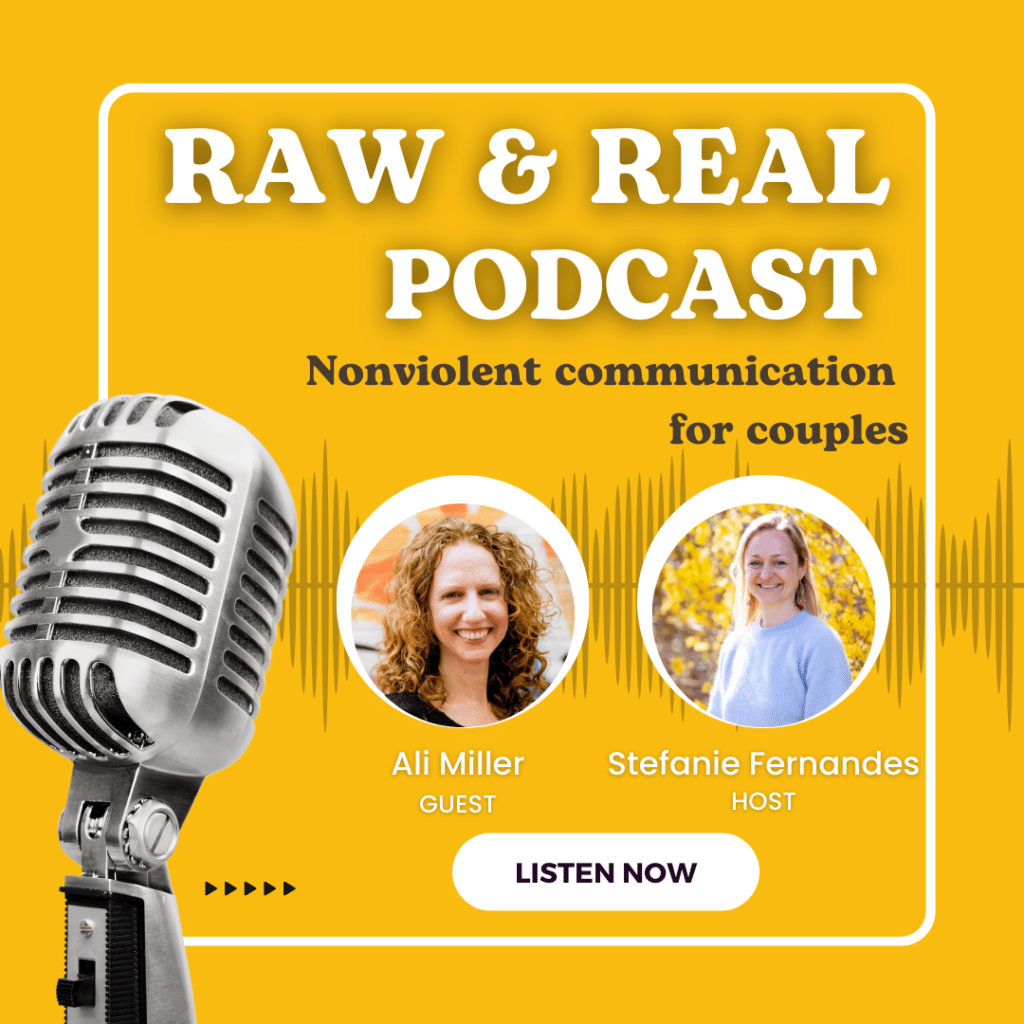The Power of Nonviolent Communication in Helping Couples Navigate Conflict
4 September 2024
Conflict is a natural part of any relationship, especially in romantic partnerships. When two people share their lives, differences in opinions, emotions, and expectations are bound to arise. While conflict itself isn’t inherently harmful, how it’s managed can make or break the health of a relationship. Enter Nonviolent Communication (NVC), a transformative communication approach that can help couples navigate conflict with empathy, understanding, and compassion.
What is Nonviolent Communication?
Nonviolent Communication, developed by psychologist Marshall Rosenberg, is a method of communicating that encourages individuals to express themselves honestly and openly, while also hearing and valuing the perspectives of others. Its primary goal is to reduce defensiveness, blame, and judgment, allowing people to connect on a deeper level during difficult conversations.
The key elements of NVC involve:
- Observations – Focus on what is happening, free from judgment or interpretation.
- Feelings – Express how specific actions or events make you feel.
- Needs – Identify the underlying needs that are causing the emotions.
- Requests – Make clear, actionable requests to meet those needs.
Why Conflict Escalates
In many cases, conflicts in relationships arise because of miscommunication or assumptions about a partner’s intentions. When emotions run high, it’s easy for a disagreement to escalate into a full-blown argument. Often, we react defensively or lash out when we feel unheard or misunderstood.
Common pitfalls include:
- Blaming the other person for how we feel.
- Judging or assuming negative intentions.
- Using criticism instead of explaining the impact of actions on our emotions.
In these moments, the focus shifts away from resolving the issue to winning the argument or proving a point. This creates distance between partners and erodes trust over time.
How NVC Can Help Couples in Conflict
Nonviolent Communication offers couples a structured way to break out of this cycle and handle disagreements more constructively. Here’s how NVC can make a difference:
1. Fosters Empathy and Understanding
At the core of NVC is empathy. Instead of jumping to conclusions or responding out of frustration, NVC encourages both partners to understand what the other is experiencing. By taking the time to recognize your partner’s feelings and needs, you can connect on a deeper level and defuse tension.
For example, instead of saying, “You never listen to me!” which may come across as an attack, you could try, “I feel frustrated when I don’t feel heard. I need us to be on the same page. Could we talk about this when you’re less distracted?” This shifts the focus from blame to collaboration.
2. Creates Space for Honest Expression
NVC invites both partners to speak openly about their feelings without fear of judgment or retaliation. It’s about expressing yourself honestly, while also being mindful of how you communicate. This allows couples to address underlying issues without the conversation becoming adversarial.
When emotions are bottled up, they often resurface in unproductive ways. With NVC, couples are encouraged to express their feelings as they arise, preventing small frustrations from turning into larger, more difficult problems.
3. Encourages Collaboration Over Competition
Many arguments stem from a “me vs. you” mentality, where each partner is trying to be right. NVC flips this dynamic by focusing on each person’s needs and working toward a solution that benefits both.
In a conflict, instead of pushing your point of view, NVC encourages you to find out what your partner needs and express your own needs clearly. When both parties feel heard and understood, it’s easier to collaborate on a solution that works for both.
4. De-escalates Tension
Conflict often triggers emotional reactions, and it can be easy to respond defensively when feeling attacked. NVC encourages individuals to slow down, observe the situation without judgment, and then express their feelings in a non-threatening way. This helps to de-escalate potentially volatile situations and keeps the conversation focused on resolution rather than blame.
For example, instead of reacting with, “You always make me feel so guilty when I go out with my friends!” you could use NVC to say, “When I hear comments about my time with friends, I feel guilty because I need to feel trusted. Can we talk about what makes you uncomfortable about it?”
5. Promotes Long-Term Relationship Health
Couples who practice Nonviolent Communication regularly tend to build stronger, more resilient relationships over time. NVC teaches the importance of mutual respect and understanding, which helps couples address issues as they arise, rather than letting unresolved conflict fester and erode the relationship.
By learning to communicate in a way that prioritizes empathy and connection, couples are better equipped to handle life’s inevitable ups and downs. This leads to a more supportive, trusting, and fulfilling relationship.
Practical Tips for Using NVC in Your Relationship
- Start Small: Begin by practicing NVC in everyday conversations, even when you’re not in conflict. This will help both partners feel comfortable using the approach when challenges arise.
- Stay Curious: If your partner expresses a need or feeling, stay curious rather than defensive. Ask questions like, “Can you tell me more about how you’re feeling?” or “What do you need from me in this situation?”
- Practice Active Listening: Focus on truly hearing what your partner is saying, rather than preparing your response while they’re speaking. Reflect back what you heard to ensure you understand their perspective.
- Take a Break if Needed: If emotions are running too high, it’s okay to take a break and revisit the conversation later when both partners are calmer and more focused on resolution.
- Make Requests, Not Demands: When expressing your needs, be mindful that your partner may not always be able to meet them exactly as requested. Aim for collaboration, rather than issuing ultimatums.
Conclusion
Nonviolent Communication provides couples with a powerful framework for navigating conflict in a healthier, more productive way. By fostering empathy, promoting honest expression, and focusing on mutual understanding, NVC helps couples move beyond blame and judgment to create deeper connection and stronger, more resilient relationships.
If you and your partner find yourselves stuck in patterns of conflict, consider exploring NVC as a tool to help you communicate with compassion, resolve differences peacefully, and build a relationship grounded in empathy and respect.

https://open.spotify.com/episode/3KSTxyHgoY9zeezjkZZ2FoAli Miller, an expert in Nonviolent Communication (NVC), has been a Marriage & Family Therapist for over twenty years. As a relationship coach, she helps parents all over the world level up their communication and conflict-resolution skills so they can be happy together again and model healthy communication for their children.
Ali has a few free resources for you like her FREE Feelings & Needs List and her FREE Minicourse How to stop fighting without giving in.
Visit Ali’s website for more information and follow her on Social media: Facebook and Instagram.



